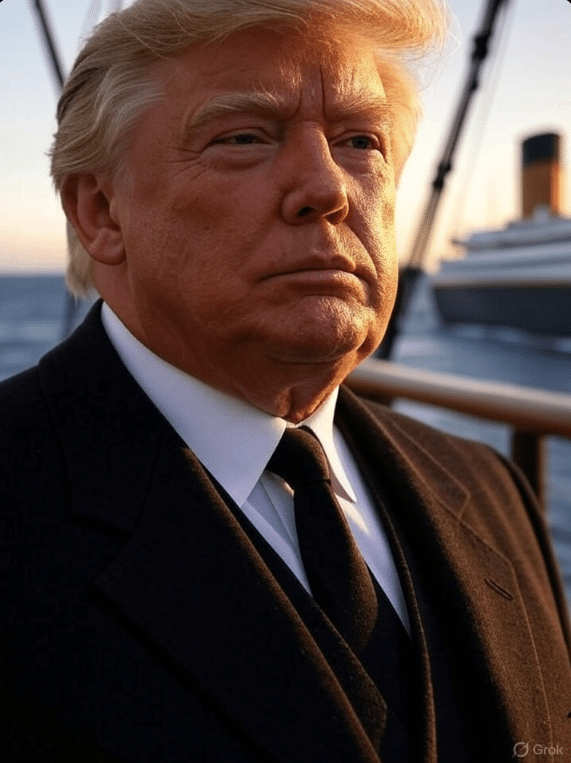When Donald Trump entered the White House for his second term as president, he had an excellent opportunity to extricate the United States from the quagmire war between Russia and Ukraine. His instincts–that continued involvement in that conflict was not in America’s best interests—were sound. Indeed, he signaled throughout the 2024 presidential campaign that he intended to terminate military and financial aid to Kyiv as soon as possible. Most of his MAGA supporters seemed to agree that the Biden administration’s willingness to send billions of dollars to Ukraine when the United States had pressing needs at home was disgraceful.
Just months into his term, however, the president seems to have abandoned the goal of jettisoning the Ukraine commitment. Instead, he has continued weapons shipments to Kyiv and authorized new ones. He also expresses growing hostility toward Russian President Vladimir Putin and is making ever more unrealistic demands on Moscow. In mid-July, that shift in policy included his insistence that the Kremlin accept a comprehensive ceasefire as the first stage of a peace accord with Ukraine—and do so within 50 days. In late July, Trump moved up the deadline for Moscow’s acquiescence to such terms to no more than 10 to 12 days. Otherwise, he warned, the United States would impose new economic sanctions on Russia far more onerous than those already in effect.
The threat to impose stronger economic sanctions, though, has lost much of its clout. Despite suffering some economic pain, Russia has been surprisingly resilient in handling existing sanctions. Moscow has done an especially impressive job of finding alternative markets for its principal exports, most notably oil and natural gas. There is no reason to believe that the situation would be different this time. Increasing Washington’s military support for NATO’s Ukrainian proxy might have more impact, but it also would be utterly reckless, bringing the specter of World War III into play.
Trump has picked an especially inauspicious time to join Ukraine’s Western fan club. It is ironic that he is continuing– and even escalating–Washington’s commitment to Ukraine at precisely the moment that Kyiv’s status as viable U.S. and NATO client has become increasingly doubtful. Russia continues to make gains on the battlefield, slowly conquering additional Ukrainian territory. The bloodied Ukrainian forces appear increasingly beleaguered, and Russia (because of its much larger population and military reserves) is better positioned for a continuing war of attrition.
Western officials have gone to great lengths to obscure the fundamental reality that Russia is winning the war, albeit in a costlier and more grinding fashion than the Kremlin expected. Ukraine and its NATO sponsors circulate transparently inflated figures of alleged Russian military fatalities. Secretary of State Marco Rubio was the latest official to attempt that ploy, asserting that Moscow had lost 100,000 troops just since January 2025. As one expert pointed out, such an estimate was preposterous on its face, since evidence confirmed that the overall size of the Russian force in Ukraine had increased rather than shrunk. The credibility of Rubio’s argument that Moscow cannot continue to sustain the drain on its manpower is not enhanced by the continuing refusal of Western analysts to provide even a rough estimate of Ukrainian casualties. Such clumsy attempts at concealment suggest that the actual news on that front is not good.
Indeed, it is Ukraine’s, not Russia’s, situation regarding the depletion of military personnel that suggests an impending crisis. One alarming sign was Kyiv’s decision to expand military recruitment even to men over 60—with no upper age limit. A country that is winning a war has no need to recruit grandfathers for military service. The average age of Ukrainian soldiers is now over 40, making that force one of the oldest in Europe—yet another sign of the growing strain on the country’s military personnel.
If the situation on the battlefield were not daunting enough, major domestic political fractures are now taking place within the Ukrainian population. The decision by President Volodymyr Zelensky and his allies in parliament to curb the independence of anti-corruption agencies has proven to be extremely unpopular. Several rounds of anti-government demonstrations have erupted in Kyiv and several other cities. Zelensky’s reputation throughout the West of being a noble leader dedicated to democracy and honest government was always unwarranted, but now a good portion of Ukrainian public opinion has developed a far more realistic and cynical view of his governance.
Zelensky’s latest moves also have alienated even some of his most reliable supporters and apologists in the West. When prominent establishment media outlets such as the Financial Times, the Spectator, and Politico all publish stories highly critical of the Ukrainian leader’s latest undemocratic moves, attitudes among the pro-Ukraine Western elites may well be shifting.
Trump’s initial instinct that nothing in Ukraine is essential to America’s security or economic interests was correct. So too was his initial conclusion that Zelensky is a corrupt, authoritarian parasite about to lead his country to a disastrous defeat at Russia’s hands. Abandoning those correct insights and belatedly embracing the conventional, erroneous view about Ukraine and its leader is what makes Trump’s policy change so frustrating and disappointing. Ukraine is akin to the Titanic as it was about to slip beneath the waves. Yet Trump has chosen this moment to climb aboard the doomed vessel instead of escaping in one of the last life boats.
Whichever advisers persuaded him to change course and revert to the policy that Biden bequeathed him are not doing either the president or the American people any favors. Indeed, they are creating a scenario for yet another U.S. foreign policy debacle.
Reprinted with permission from Antiwar.com.

